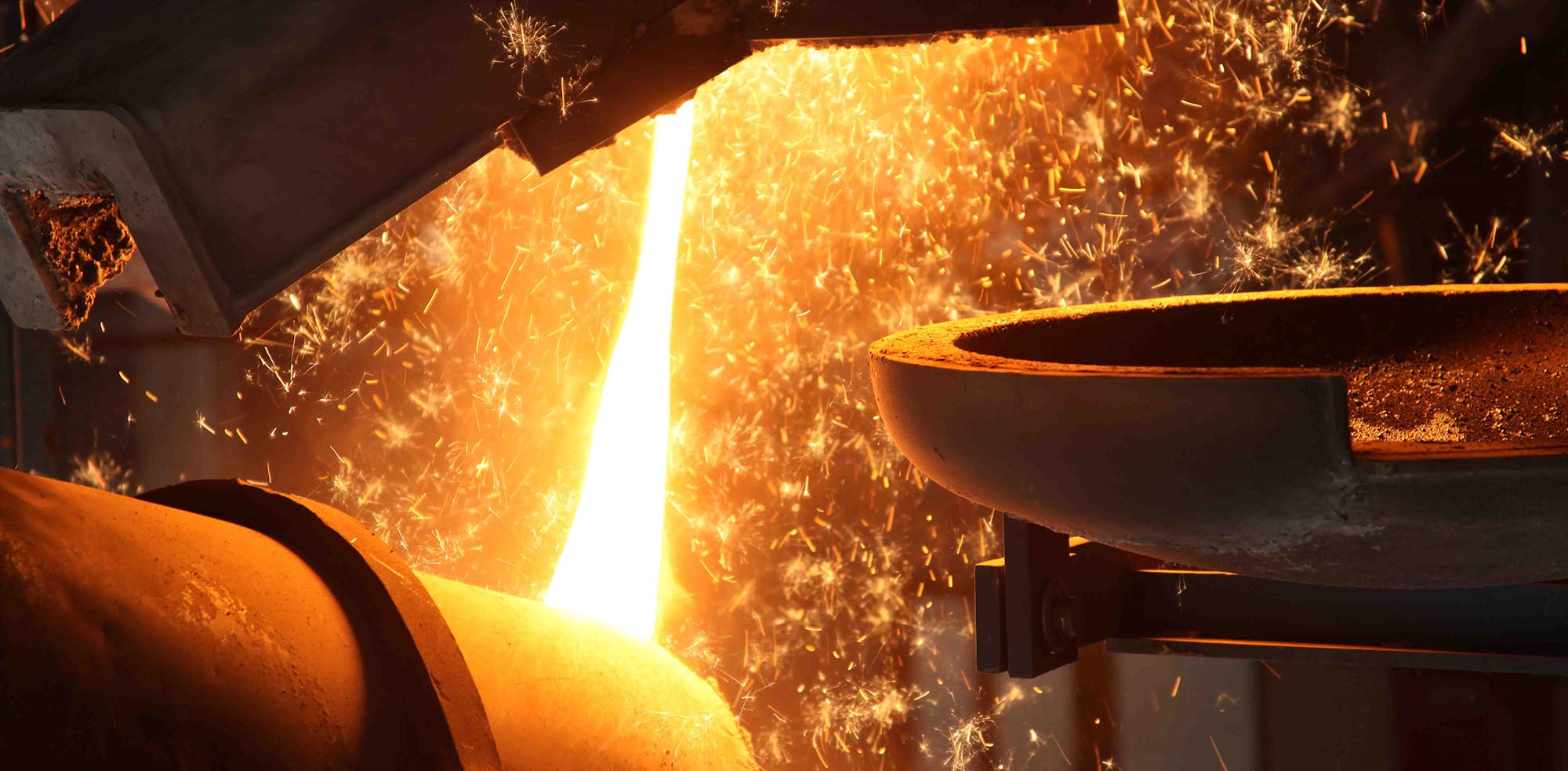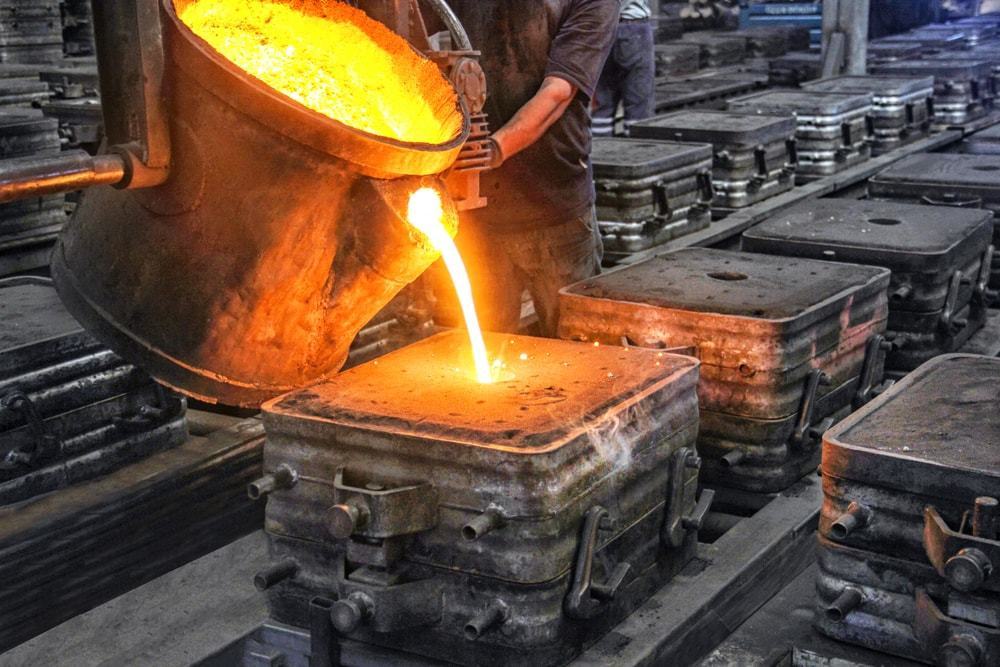Just How a Metal Foundry Adds To Sustainable Metal Manufacturing Practices
Metal foundries play a vital duty in promoting sustainability within the metal production market. By including recycled materials, they minimize dependence on virgin resources and reduce environmental impacts. Energy-efficient melting processes additionally minimize power consumption and discharges. The trip toward lasting techniques entails even more than just reusing and energy administration. It incorporates a wider commitment to moral sourcing and ingenious technologies. The effects of these methods are substantial and warrant more detailed exam.
The Duty of Recycling in Metal Foundries
While metal manufacturing has commonly depended on virgin materials, the increasing focus on sustainability has actually caused a considerable change in techniques, especially in metal foundries. Recycling has arised as an essential part of this improvement, permitting foundries to repurpose scrap metal and decrease dependence on extracted sources. By integrating recycled materials right into their procedures, foundries not just reduce ecological influence but also reduced manufacturing prices.
The usage of recycled metals, such as steel, light weight aluminum, and copper, reduces power usage and decreases greenhouse gas emissions linked with typical mining and refining techniques. Foundries can accomplish high-quality outputs by using sophisticated sorting and processing modern technologies to ensure the pureness of recycled materials. This emphasis on reusing fosters a round economic climate, where waste is decreased, and sources are used successfully. Metal foundries play a critical function in advertising sustainable techniques within the metal production sector.
Energy-Efficient Melting Methods
Energy-efficient melting techniques are essential for enhancing sustainability in metal manufacturing. These strategies considerably minimize energy intake during the melting procedure, which is among the most energy-intensive stages in metal manufacturing. Technologies such as induction melting, resistance home heating, and microwave melting deal boosted efficiency compared to typical methods. Induction melting, as an example, makes use of magnetic fields to produce warmth directly within the metal, lessening power loss and giving specific temperature level control.
In addition, executing heat recovery systems can even more improve performance by capturing and reusing waste warmth generated throughout melting. Using innovative insulation products and enhancing heating system styles likewise contribute to energy savings. By adopting these innovative melting techniques, metal foundries can lower their carbon footprint, decrease operational costs, and contribute to an extra lasting manufacturing landscape. The combination of energy-efficient methods not only straightens with ecological objectives yet additionally fulfills the expanding demand for responsible production techniques in the metal sector.
Lasting Sourcing of Raw Products
Sustainable sourcing of resources is vital for lessening the environmental impact of metal manufacturing. This includes the enhanced usage of recycled metals, the fostering of honest mining practices, and efforts aimed at regional sourcing. By prioritizing these strategies, the industry can advertise liable source administration and assistance regional economic climates.

Recycled Metal Use
How can markets properly decrease their environmental effect while fulfilling the growing demand for metal? One significant method is the application of recycled metal. By integrating scrap metal right into their production processes, foundries can lower the extraction of virgin products, therefore reducing and conserving natural resources energy consumption. Recycled steels need much less energy to process compared to their raw counterparts, resulting in reduced greenhouse gas emissions. In addition, making use of recycled metal assists draw away waste from landfills, advertising a circular economic climate. Industries that prioritize recycled metal not just contribute to sustainability however likewise advantage from price savings associated with minimized material procurement. Recycled metal use stands as an important method for eco liable metal manufacturing.
Moral Mining Practices
While the need for steels remains to increase, markets are progressively acknowledging the significance of honest mining practices in making sure liable sourcing of basic materials. Honest mining includes a commitment to environmental stewardship, social duty, and adherence to fair labor methods. Firms are now prioritizing collaborations with mines that show openness in their procedures, reducing environmental effect and respecting local communities. This technique not only promotes a sustainable supply chain but also boosts the online reputation of businesses entailed. By implementing strenuous criteria and accreditations, industries can combat unlawful mining activities and advertise the welfare of workers. Inevitably, ethical mining methods contribute substantially to an extra lasting metal production ecological community, straightening economic development with social and ecological stability.
Local Sourcing Initiatives

Advancements in Metal Casting Procedures
Advancements in metal casting procedures are transforming the sector by including advanced recycling techniques that decrease waste. Energy-efficient melting techniques are likewise being established to minimize power usage throughout production. In addition, using innovative mold and mildew materials contributes to boosted performance and sustainability in casting procedures.
Advanced Recycling Techniques
Advanced recycling techniques are transforming metal casting processes, significantly improving sustainability in the industry. These technologies concentrate on redeeming and recycling scrap metal, significantly minimizing waste and the requirement for virgin materials. Techniques such as hydrometallurgy and pyrometallurgy enable foundries to remove beneficial metals from used components, guaranteeing reliable resource usage. Furthermore, progressed sorting and filtration technologies enhance the quality of recycled steels, making them suitable for high-performance applications. This not just decreases the ecological footprint of metal manufacturing however likewise fosters a round economic situation by advertising the reuse of products. As these reusing methods proceed to develop, they guarantee to additionally improve operations within foundries and add to an extra lasting metal production landscape.
Energy-Efficient Melting Methods
While conventional melting methods have actually long been the foundation of metal casting, current developments have introduced energy-efficient methods that noticeably minimize energy usage and discharges. Technologies such as induction melting and electrical arc heaters have actually acquired prestige, permitting specific control over temperature and minimizing the demand for fossil fuels. These methods not only boost energy performance but additionally advertise faster melting times, which translates to reduce operational costs. Additionally, developments in warm healing systems allow foundries to record and reuse excess warm produced throughout the melting process. This holistic approach to power administration not just supports sustainable techniques however likewise placements metal find here foundries as leaders in the shift in the direction of greener production procedures, further lining up with worldwide sustainability goals.
Ingenious Mold Products
As the demand for even more efficient and lasting metal casting processes grows, the expedition of cutting-edge mold and mildew products has actually become a prime focus in the market. Traditional mold materials frequently add to ecological difficulties, prompting the look for choices that minimize waste and energy usage. Recent innovations consist of the advancement of eco-friendly binders and recyclable compounds, which not just boost mold and mildew efficiency however also lessen ecological influence. Furthermore, using 3D printing modern technology in mold production enables complex designs that decrease product usage and enable rapid prototyping. These innovative products not just boost casting precision yet additionally straighten with sustainability goals, showcasing the industry's dedication to decreasing its carbon footprint while keeping top quality production criteria.
Decreasing Waste Via Advanced Technology
Cutting-edge modern technologies are transforming the metal manufacturing market by greatly minimizing waste and boosting performance. Advanced data analytics and artificial intelligence algorithms enable foundries to optimize manufacturing processes, recognizing inefficiencies and decreasing scrap material. Smart sensors check devices efficiency in real-time, enabling for predictive upkeep that decreases downtime and waste generation. In addition, additive production methods, such as 3D printing, enable the creation of complicated parts with marginal product usage, significantly decreasing waste contrasted to standard methods.
Moreover, closed-loop systems are becoming a lot more prevalent, in which scrap metal and byproducts are reused back into the production cycle, making certain that products are utilized to their fullest potential - Aluminum Foundry. This combination of technology not only promotes resource conservation however also boosts the general sustainability of metal production techniques. By welcoming these improvements, foundries can add to an extra sustainable future while preserving competition on the market
The Impact of Foundries on Carbon Footprint Decrease
Foundries play a crucial role in reducing the carbon footprint of the metal manufacturing industry by implementing numerous sustainable techniques. By using energy-efficient technologies, such as electrical arc heating systems, these facilities considerably lower greenhouse gas discharges contrasted to standard techniques. Additionally, foundries increasingly adopt renewable resource resources, which also decreases their dependence on fossil gas.
Reusing scrap metal is one more vital practice that foundries use, preserving sources and minimizing the demand for virgin products. This not just lessens waste however also reduces the energy-intensive removal procedures connected with mining. In addition, the fostering of closed-loop water supply helps to lessen water usage and decrease wastewater discharge, adding to a more sustainable operation.
Via these initiatives, foundries show their commitment to ecological stewardship, leading to a significant reduction in the general carbon impact of the metal manufacturing sector. Their continuous efforts are essential in the shift toward a more sustainable commercial landscape.
Regularly Asked Concerns
What Sorts of Metals Are Many Commonly Recycled in Foundries?
Light weight aluminum, copper, steel, and brass are among one of the most frequently recycled steels in foundries. These metals are favored as a result of their high recycling prices, economic worth, and prevalent availability, contributing considerably to commercial sustainability initiatives.
Just How Do Foundries Ensure the High Quality of Recycled Products?
Foundries identify the high quality of recycled materials through strenuous screening, sorting, and purification procedures. They carry out sophisticated innovations to evaluate composition and get rid of contaminations, ensuring that the recycled metals fulfill market standards for performance and safety.
What Certifications Exist for Lasting Foundry Practices?
Different certifications exist for lasting foundry practices, consisting of ISO 14001 for environmental management, ISO 50001 for power monitoring, and LEED certification for lasting building techniques (Metal Foundry). These qualifications assist assure adherence to environmental and sustainability criteria in operations
Just How Do Foundries Determine Their Carbon Impact Reduction?
Foundries gauge check here carbon footprint decrease through devices like lifecycle assessments, power audits, and emissions tracking systems. They contrast baseline exhausts to present outcomes, evaluating enhancements in power efficiency, product use, and renewable resource adoption over time.
What Are the Financial Advantages of Sustainable Metal Manufacturing?
Lasting my latest blog post metal production offers financial benefits such as minimized functional expenses, raised effectiveness, enhanced market competition, and possible government motivations. Additionally, it fosters technology and brings in eco mindful consumers, eventually driving lasting profitability for services.
Metal foundries play a crucial function in advertising sustainability within the metal production market. While metal manufacturing has actually traditionally relied on virgin materials, the boosting focus on sustainability has actually led to a significant change in techniques, particularly in metal foundries. By integrating scrap metal right into their production processes, foundries can reduce the removal of virgin products, thus saving natural resources and decreasing power consumption. Foundries play a vital function in lowering the carbon footprint of the metal manufacturing market by executing different sustainable practices. Recycling scrap metal is another crucial practice that foundries employ, preserving resources and decreasing the need for virgin materials.